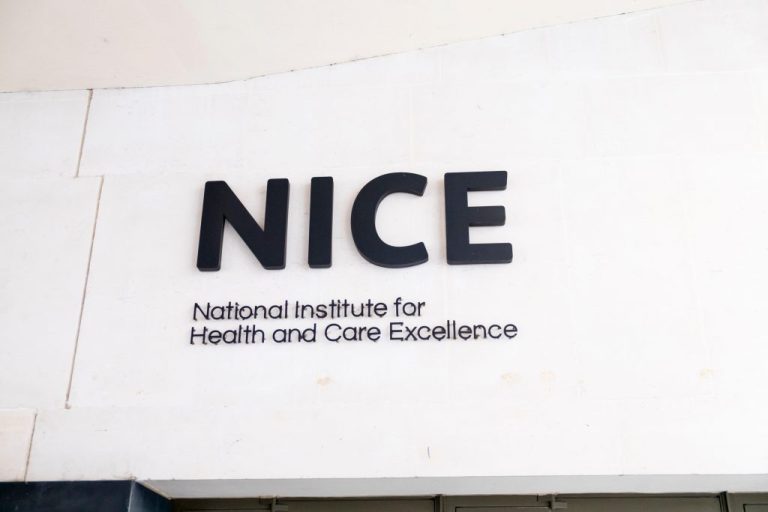NHS patients in England with cystic fibrosis will be among the first in Europe to access a new treatment for their condition, following guidance backing a once-daily triple therapy.
The combination therapy, containing deutivacaftor, tezacaftor and vanzacaftor, and marketed under the brand name Alyftrek, is manufactured by Vertex.
“CFTR modulators are already revolutionising the way cystic fibrosis is treated”
Helen Knight
Final draft guidance, published this week by the National Institute for Health and Clinical Excellence (NICE), has recommended it for NHS use for treating patients with the genetic disorder.
It will be an option for specialist nurses to treat cystic fibrosis in those six years and over who have at least one F508del mutation in the cystic fibrosis transmembrane conductance regulator (CFTR) gene.
NICE noted that this was a “narrower” population than the drug’s marketing authorisation, which also includes people with another responsive mutation in the CFTR gene.
It said this was because the evaluation used it’s streamlined cost comparison process. It compared Alyftrek with Kaftrio, which is not indicated for people with another responsive mutation in the CFTR gene. NHS commissioning policy covers this group of people.
The latest recommendation formed part of an “evolving treatment landscape” for cystic fibrosis, according to NICE, due to new types of drugs like Alyftrek becoming available.
It highlighted that CFTR modulators were continuing to shift care away from symptom management towards targeting the underlying cause of the disease.
The recommendation follows a rapid assessment by the institute, which compared Alyftrek with the company’s other NICE-approved triple therapy Kaftrio.
The assessment suggested Alyftrek was at least as effective as Kaftrio, with similar costs, but with the additional benefit of a once-daily regimen over Kaftrio’s twice-daily regimen.
Licensed for use in the UK in March, Alyftrek will now be funded by the NHS in England and available immediately. It also follows a commercial agreement reached between NHS England and Vertex.
Helen Knight, director of medicines evaluation at NICE, said: “CFTR modulators are already revolutionising the way cystic fibrosis is treated.
“So we’re pleased to be able to recommend Alyftrek, the latest of this type of treatment that has been shown to be effective, with significant benefits for people with the condition.
“Today’s decision follows NICE’s approval last year of Kaftrio and comes just weeks after Alyftrek was licensed for use in the UK,” noted Ms Knight.
She added: “This is great news for people with cystic fibrosis and underlies our commitment to getting the best care to patients fast while ensuring the best value for the NHS drugs budget.”
The CFTR gene normally creates a protein that regulates levels of sodium and chloride in cells. If the gene is faulty, cells are unable to make functioning versions of this protein.
In patients with cystic fibrosis, this leads to a buildup of thick, sticky mucus in the body’s tubes and passageways, especially the lungs and respiratory system.
Vanzacaftor and tezacaftor are CFTR correctors that bind to different sites on the CFTR protein, leading to an increase in the amount of the protein on the cell surface.
Meanwhile, the third part of the therapy, deutivacaftor, improves the activity of the defective CFTR protein at the cell surface.
These combined actions make lung mucus and digestive juices less thick, thereby helping to relieve symptoms of cystic fibrosis.
David Ramsden, chief executive of the Cystic Fibrosis Trust, described the announcement by NICE as a “positive step in the journey to better treatments for more people with cystic fibrosis”.
“It’s thanks to the incredible hard work and support of the cystic fibrosis community and everyone we work with that modulator drugs are now a treatment option for many,” he said.
He added: “Cystic fibrosis continues to make lives too tough and too short, which is why we will continue funding vital research.”
Cystic fibrosis affects about 11,000 people in the UK. About one in 25 people are carriers of a faulty gene that can cause cystic fibrosis, of which there are over 2,000 known mutations.
For someone to be born with cystic fibrosis, they must inherit a faulty gene from both parents. These mutations can either be homozygous, the same, or heterozygous, different mutations.
The most common mutation is the F508del mutation and around 9714 (89%) people with cystic fibrosis carry at least one copy of the F508del mutation.

